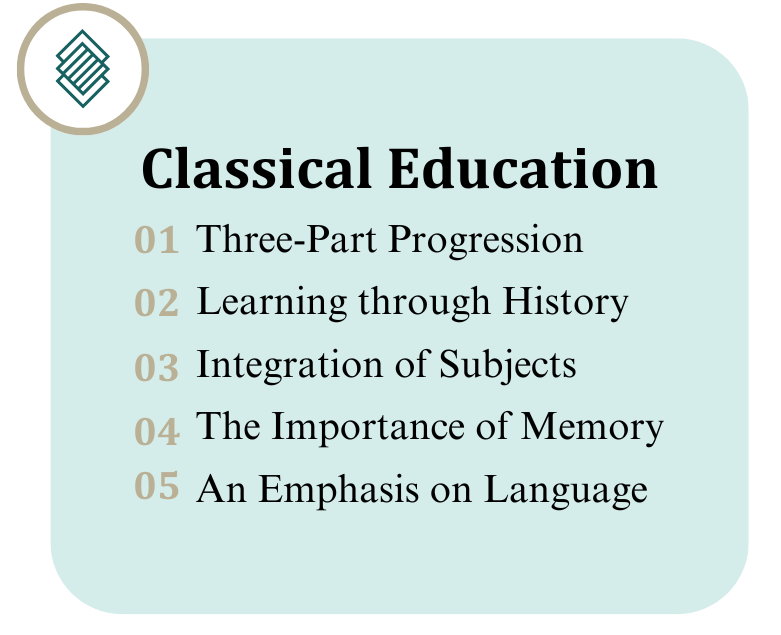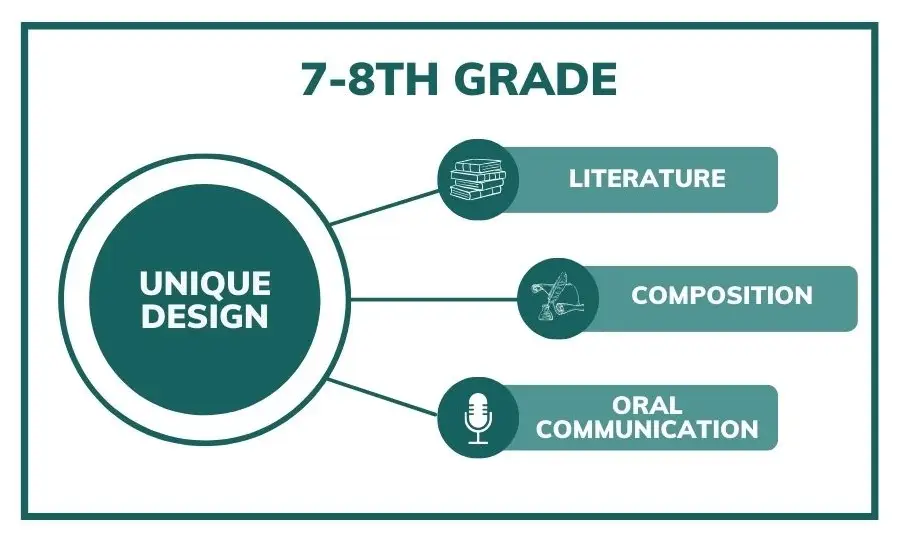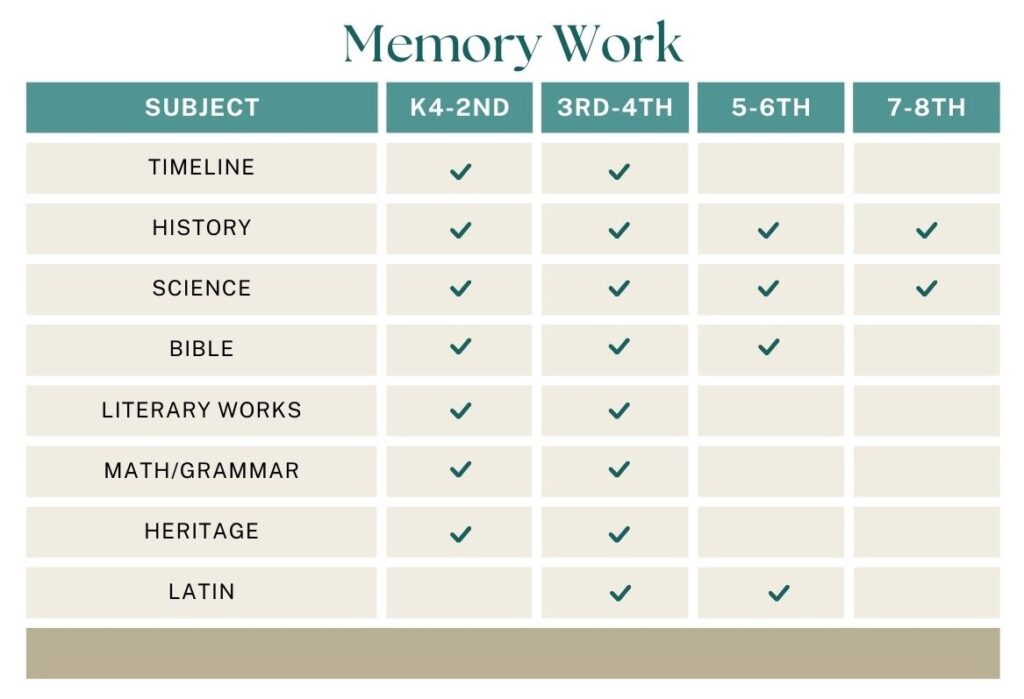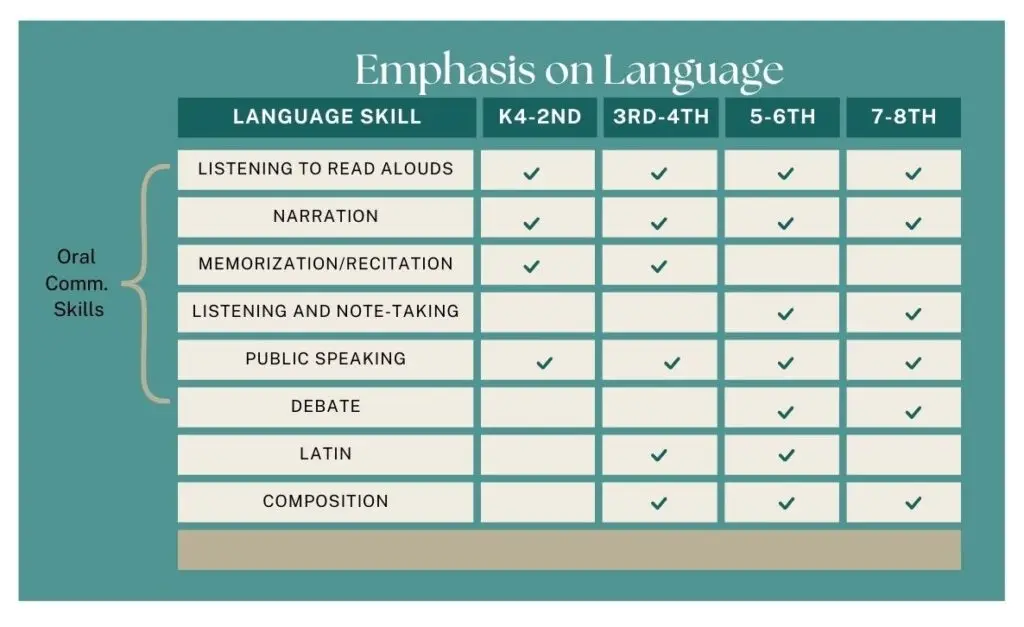



Our Educational Philosophy
The Comm. Central curriculum integrates the Classical Educational philosophy in these five ways.



THREE-PART PROGRESSION:
The foundational framework of classical education is the Trivium, which consists of three levels of learning that correspond to the natural developmental stages of a child. Comm. Central practices the Trivium with a twist.

LEARNING THROUGH HISTORY:
In classical education, history is taught in a chronological cycle and science through the corresponding development of thought. This allows students to see connections between historical events and the development of human thought over time.
Our Four-Year Rotation allows for family discussions around common themes because all students, K4-8th grade, are studying the same subject matter. As students progress though each cycle, they build on their knowledge, revisiting content with increasing depth and complexity.

INTEGRATION OF SUBJECTS:
Classical education integrates subjects by weaving together history, literature, science, and the arts, allowing students to make connections across disciplines and develop a deeper, more cohesive understanding and greater retention of knowledge.
NOTE: 7-8th graders follow a different integration of subjects. See below.
Unique Design
Rooted in the belief that each student is uniquely designed by God with distinct interests, curiosities, skills, and talents
As 7th and 8th graders enter the Exploration Stage of more independent learning, they begin to discover and deepen their understanding of who they are. While all students complete a Unique Design Project (see How Our Curriculum Follows the Fun-Schooling Educational Model), 7th and 8th graders take this a step further by exploring their Unique Design across multiple disciplines, integrating their personal interests and strengths into their academic journey.




THE IMPORTANCE OF MEMORY:
Memory is the cornerstone of classical education, providing students with a rich intellectual foundation that enables deeper learning, critical thinking, and the ability to connect ideas across different disciplines.

Our curriculum emphasizes the importance of memory work in K-4th grades, where students engage in activities that promote memorization of key facts, literary works, and Scripture, laying a strong foundation for learning in the upper grades.
While 5-8th grade students don’t participate in weekly recitation activities, some memory work is included in their guides to assist with learning.


AN EMPHASIS ON LANGUAGE:
Our curriculum follows the classical education model’s strong emphasis on language, ensuring that students develop a deep mastery of both written and spoken expression.
ORAL COMMUNICATION SKILLS:
Oral communication skills are emphasized across all grades. To understand how, see Our Methods.


LATIN:
Beginning in 3rd grade, our curriculum guides students in cycling through 4 level I Latin texts over four years. This is a highly successful approach because our focus for studying Latin is
- Improving vocabulary through learning Latin roots and English derivatives (Different texts emphasize different vocabulary.),
- Understanding foundational English grammar concepts, and
- Mastering the declension of nouns and the conjugation of verbs – the foundation of foreign language study.
COMPOSITION:
- The composition program we utilize in 3rd-6th grade doesn’t expect students to write original content but rather teaches them to mimic the masters. As students progress, they learn organizatonal skills and how to add their own artistic flair.
- In 7-8th grade, when students are developmentally ready, the focus shifts to writing original content and analytical and persuasive writing.
Want to learn more about how Comm. Central curriculum blends educational philosophies for a unique learning experience?
Follow the links to continue learning.
